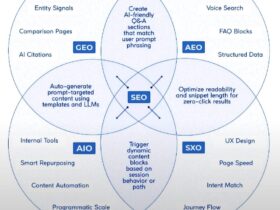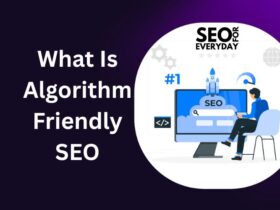In today’s competitive digital marketing landscape, businesses are constantly looking for ways to optimize their online campaigns and improve ad performance. One of the key tools offered by Meta (formerly Facebook) for achieving this is automatic advanced matching. But should you turn it on? This blog will explore what AAM is, how it works, its benefits, and considerations to help you make an informed decision.
If you’re wondering whether to enable AAM for your Meta ads, the answer largely depends on your business goals and technical capabilities. AAM allows Meta to use customer data like email addresses and names from your website to enhance ad targeting. This feature can increase conversion tracking accuracy, expand your custom audience, and lower your cost per conversion.
What is Automatic Advanced Matching?
Automatic advanced matching is a feature provided by Meta that allows advertisers to improve the accuracy of their Facebook Pixel by sending hashed customer data (like email addresses, phone numbers, and names) along with Pixel events. This data helps Meta match more website conversions to Facebook users, which in turn can optimize ad delivery and enhance reporting accuracy.
When you activate AAM, the Pixel looks for recognizable form fields on your website that contain user information. This data is then hashed in the visitor’s browser before being sent to Meta, ensuring that the information is secure. Meta uses this hashed data to better identify which users are interacting with your ads, leading to improved targeting and reporting.
How Does AAM Work?
Automatic advanced matching works by enhancing the standard Facebook Pixel setup. Here’s a breakdown of the process:
- Data Collection: When a visitor interacts with your website, the Facebook Pixel automatically collects identifiable information from form fields (like email, phone number, first name, etc.).
- Data Hashing: Before this data is sent to Meta, it is hashed within the visitor’s browser. Hashing is a process that converts data into a fixed-size string of characters, which is nearly impossible to reverse-engineer, thus protecting user privacy.
- Data Matching: Once the hashed data reaches Meta, it is matched with the information already available in Meta’s database. If a match is found, Meta can attribute the conversion or action to a specific user, even if they were logged out at the time of the interaction.
- Improved Targeting and Reporting: This process allows Meta to better understand which ads are driving results, enabling you to optimize your campaigns more effectively.
Benefits of AAM
Turning on automatic advanced matching can offer several benefits to your Meta ad campaigns:
- Increased Attributed Conversions: With better data matching, you can accurately attribute more conversions to your Meta ads. This helps you understand the real impact of your ads on your website’s performance.
- Expanded Custom Audience: As Meta can better match website visitors with Facebook users, your custom audience size increases. This expanded audience can be crucial for retargeting campaigns.
- Lower Cost Per Conversion: By accurately identifying and targeting users who are more likely to convert, your campaigns become more efficient. This efficiency often translates to a lower cost per conversion, maximizing your return on investment (ROI).
- Enhanced Data Privacy: Since the data is hashed before being sent to Meta, user privacy is maintained. This is increasingly important in a world where data privacy regulations are becoming stricter.
- Ease of Implementation: Unlike manual advanced matching, which requires technical expertise and code modification, AAM can be turned on with just a toggle in Meta Events Manager, making it accessible to businesses of all sizes.
Considerations Before Turning on Automatic Advanced Matching
While the benefits of automatic advanced matching are clear, there are some considerations to keep in mind:
- Business Vertical Restrictions: Certain business categories, such as financial services, pharmaceuticals, and insurance, may be restricted from using AAM due to stricter data privacy regulations. If your business falls into one of these categories, you may need to set up manual advanced matching instead.
- Pixel Implementation: If your website’s Pixel is set up within an iframe or as an IMG Pixel, AAM may not be available. In these cases, manual setup is required.
- Data Compliance: Before activating AAM, ensure that your data collection practices comply with relevant privacy laws, such as GDPR or CCPA. It’s essential to inform your website visitors about how their data is being used and to obtain any necessary consents.
- Impact on User Experience: While AAM enhances ad targeting, it’s crucial to strike a balance between data collection and user experience. Over-collecting data or appearing too intrusive could lead to a negative perception of your brand.
How to Turn on Automatic Advanced Matching
If you’ve weighed the benefits and considerations and decided that AAM is right for your business, here’s how to turn it on:
- Access Meta Events Manager: Log into your Meta Business Manager account and navigate to the Events Manager.
- Select Your Pixel: Choose the Facebook Pixel you want to apply AAM to.
- Activate Advanced Matching: Find the advanced matching option and toggle it on. You can also review the types of data that will be collected and make adjustments as needed.
- Review and Save: After enabling the feature, review your settings to ensure everything is configured correctly. Once satisfied, save your changes.
Should You Turn on AAM?
AAM can be a powerful tool for optimizing your Meta ad campaigns. By providing more accurate data to Meta, you can enhance your targeting, increase conversions, and improve your overall ad performance. However, it’s essential to consider your business’s specific needs, industry regulations, and data privacy obligations before activating this feature.
If you’re in an unrestricted business vertical and looking to maximize the effectiveness of your Meta ads, turning on automatic advanced matching is likely a smart move. For businesses facing restrictions, manual advanced matching can still provide many of the same benefits with a bit more effort.
In any case, always ensure that your data practices are transparent and compliant with privacy laws to maintain trust with your audience while driving better results from your ad campaigns.








Leave a Reply